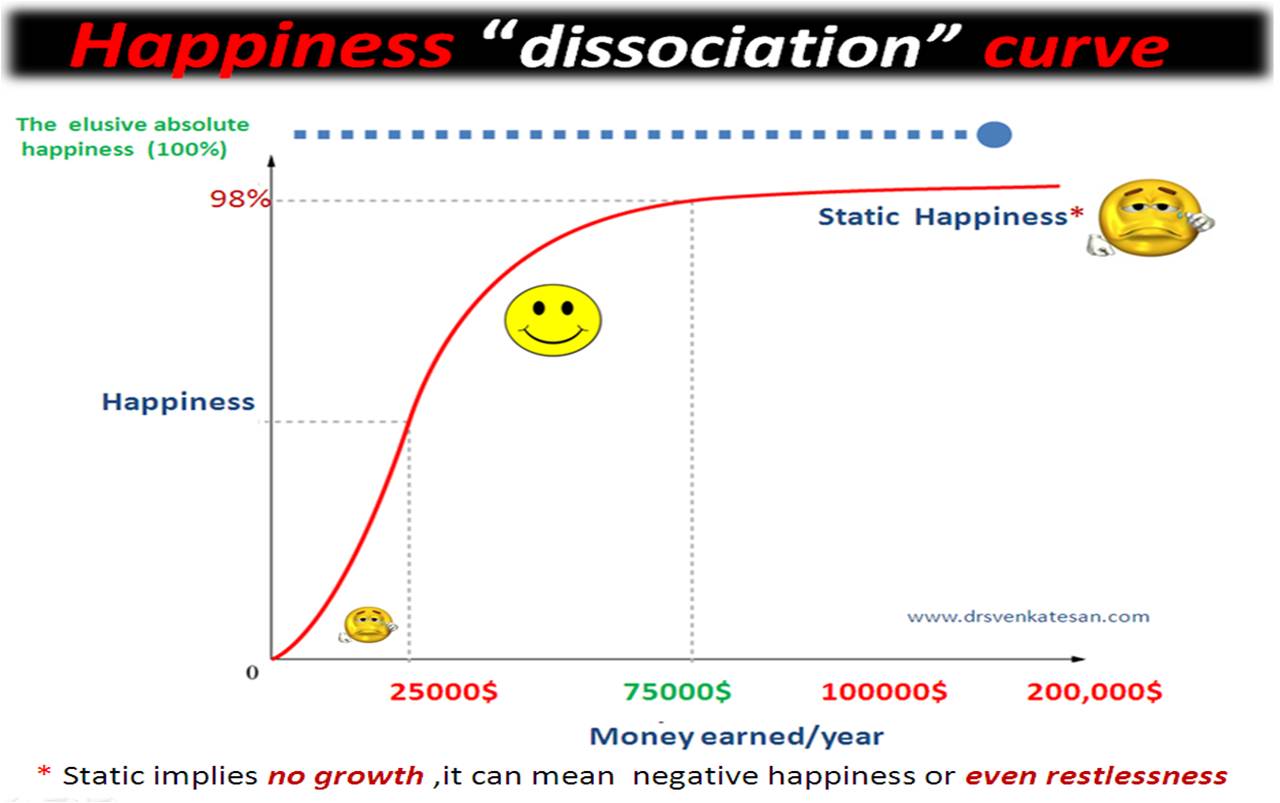Money and happiness have a clear, evident relationship. Economist Justin Wolfers from the University of Michigan has concluded from his studies that "Wealthier people are happier than poor people. Wealthier countries are happier than poor countries." In my opinion, this issue is much more complicated than researchers make it seem.
What Americans don't realize is that there is an end to the connection between money and happiness. Research from psychologists and economists have found that "the psychological benefits of wealth seem to stop accruing once people reach an income of about $75,000 a year." Once one is able to
 |
| Money vs. Happiness |
The fact that we equate money with happiness reflects our views as a society. America is a "live to work" society as opposed to a "work to live" society. This simply means that Americans in general revolve their lives around their job, and not everything else there is to enjoy in life. If the relationship between money and happiness does have a clear end, why can't one be happy living an average, stable life with just enough money? In reality, money only buys happiness to a certain extent. So why do Americans obsess over it?
No comments:
Post a Comment